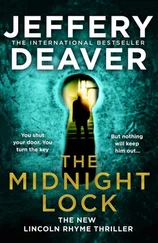A pad was consulted and its touchscreen touched, and Shaw’s undercover identity was recognized.
“Good to see you, Mr. Skye. Now, you have any weapons, liquor or drugs with you, or in the vehicle?”
“No. Just clothes, shaving kit, the usual.”
Another touch to the pad.
He’d been honest about his possessions, if not his name, and it was just as well. Across the parking lot were two men in similar uniforms, carefully searching an SUV. One held a mirror on a long handle, examining the undercarriage. This was how security forces searched for bombs, and drug agents for controlled substances.
The guard walked to the back of the Silverado and jotted something on an envelope, license plate number and make probably. If anyone checked — not that there’d be a reason to — the truck had been leased in a corporate name. Suitably anonymous and hardly suspicious. He handed the envelope to Shaw. “Park anywhere, put the keys inside and go through the main gate. There’ll be somebody there to direct you. Be sure to keep your application form with you.”
“Got it.”
Another tap on the touchpad screen and the gate opened with a faint grind.
After parking, he climbed out and foraged in his backpack for the application, slipped it into the inside pocket of his tattered windbreaker. He also wore a wrinkled white T-shirt, faded blue jeans and scuffed Nocona boots, dark brown. Picking up the luggage, he turned toward the camp entrance. The chain link wasn’t the only barricade protecting the Osiris Foundation. Shaw was looking at a tall, pressure-treated stockade fence. The gate in this barrier was made of dark metal bars and over it were words in wrought iron:
YESTERDAY, TODAY, TOMORROW
The gate’s panels, each six feet wide, were open. He walked through them and a man who could have been the first guard’s brother gave him a smile, took the key envelope and his luggage and directed him through a metal detector.
On the other side, Shaw turned back to him. The guard pointed to a path and said, “Follow that into the camp. Administration is the third building on the left.”
He reached for his backpack and gym bag.
“We’ll take care of that for you, sir.”
“I’ll hang on to ’em.” A bit diffident. Carter Skye had some rough edges.
“We’ll take care of them, sir.” Another smile. Of sorts. No way in hell was Shaw getting the bags. He hesitated. Then exchanged them for a claim check.
The guard tapped his touchpad.
Shaw followed the footpath for about a hundred feet through woods fragrant with pine and eucalyptus and jasmine. When the foliage ended, Shaw stopped and examined what lay before him.
The Osiris Foundation’s camp nestled in a valley of grass and woods, about thirty or so acres in total. High, rocky cliffs covered three sides and, to Shaw’s left — which was east — stood a forest crisscrossed with paths. Beyond that there was a steep drop-off. Though you couldn’t see it from here, on the other side of the cliff was the large lake he’d seen on his maps. Through the trees he could see in the distance a spectacular panorama of mountains.
Shaw counted scores of buildings, most of them single-story. One, though, dominating the southern end of the camp, was larger than the others. It had three floors and was crowned by an octagonal glass gazebo. This structure was on the back boundary of the compound, south. Shaw could guess who lived there.
All of the buildings, which had peaked roofs to stave off snow-weight damage, were fashioned in log-cabin style but had not been constructed on-site from hand-hewn timber; the pieces were too even and well seated. These were the result of prefab kits. Shaw knew the process. The whole camp could have been set up in a month, and the bill would have been substantial.
He thought of the place as a camp because that was how it was described in the material he’d been sent with the application. Having just finished a job in Silicon Valley earlier in the month, he found the word curious; there, most corporate grounds were called campuses , as in college. Camp had a different connotation. There was summer camp, of course, but also boot camp. Detention camp too.
And then, chilled at the thought, Colter Shaw realized that the arching words in wrought iron over the entrance gate were reminiscent of yet another facility, infamous, from the past century.
The place was, at the same time, beautiful and unsettling. Anne DeStefano, the deprogrammer, had warned him to stay away. But he couldn’t. He hadn’t shared with her that he did indeed have a personal stake.
Adam Harper — who had risked everything to eradicate Erick Young’s sorrow — had died because of him.
And he now knew the death couldn’t be because of the crime at the church, which was a justifiable act of self-defense.
Everybody’s got the blues. Just live with it.
Adam’s father’s ironic phrasing. But sometimes you just couldn’t live with it, and Shaw should have known that.
His death was a question that had to be answered.
Another image lingered too: the brunette, alone among those at the site of Adam’s death who was so deeply saddened by his demise. And the hulking van driver’s whip-crack words to her... a correction of some sort. Then her shrinking, in revulsion, from his unwanted touch. Was she too at risk, like Adam, because of something at the Foundation?
Were other followers endangered as well?
Shaw’s career as a reward seeker, no, his essence was about survival. Saving lives. Finding the kidnap victim, the imperiled runaway, the serial killer stalking the sales clerk or college coed. And here he’d failed. Adam was dead. He needed to know why. And he needed to know if anyone else here was at risk.
Shaw looked at what he was doing as a reward job like any other, just without the reward. He’d come here to investigate. And, if anyone needed rescuing, he’d rescue them. If abuse needed to be exposed, then that’s what he’d do.
“You’re looking for Administration, Mr. Skye?” A voice from behind. It was another gray tunicked man. Also smiling. Also with still, careful eyes. He scanned Shaw’s rough-and-tumble outfit carefully, even though the metal detector would have reassured him that Shaw had nothing threatening on his person.
And how does he know my name?
From the tablet, of course, which he now slipped into a small shoulder bag.
He muttered, “I see it. Just looking over the place. Nice view.”
“Yessir.” The man remained impassive.
Shaw took the hint — the equivalent of a cop saying, “Move along” — and continued down the path. He passed a building marked LUGGAGE STORAGE, then a larger one, ASSISTANCE UNIT.
The next was Administration. It was larger than the others he’d just passed. He walked into the spotless, stark lobby and was greeted by a brunette at a reception desk. She was in her early thirties. Her outfit was the same as those worn by the women in the van who had driven down Highland Bypass to pick up Adam and Erick: pale blue top and black skirt.
And she wore a necklace — a purple infinity sign, just like Harvey Edwards had, the killer of the San Francisco journalist. Almost certainly answering the question of whether he’d been affiliated with the Foundation. This would be the necklace that the followers in the van had worn — the ones he couldn’t identify clearly in the distance.
Down a long corridor behind her, Shaw noted doors marked INTAKE, BUSINESS AFFAIRS, PLANNING, MEDIA. There were other offices too, though the corridor was dim and he couldn’t read those signs from here.
Yet another tablet was consulted. “Mr. Skye, go right on in.” Nodding to the INTAKE door.
Читать дальше
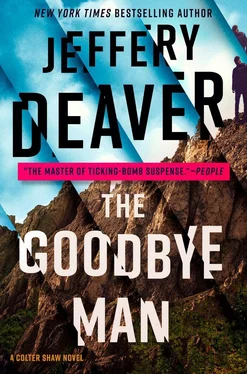
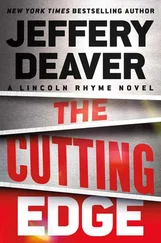




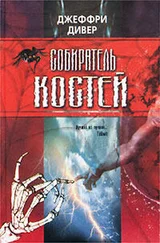
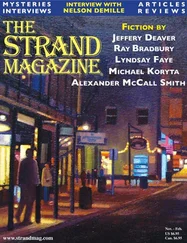
![Джеффри Дивер - Where the Evidence Lies [A Lincoln Rhyme Short Story]](/books/403782/dzheffri-diver-where-the-evidence-lies-a-lincoln-r-thumb.webp)

